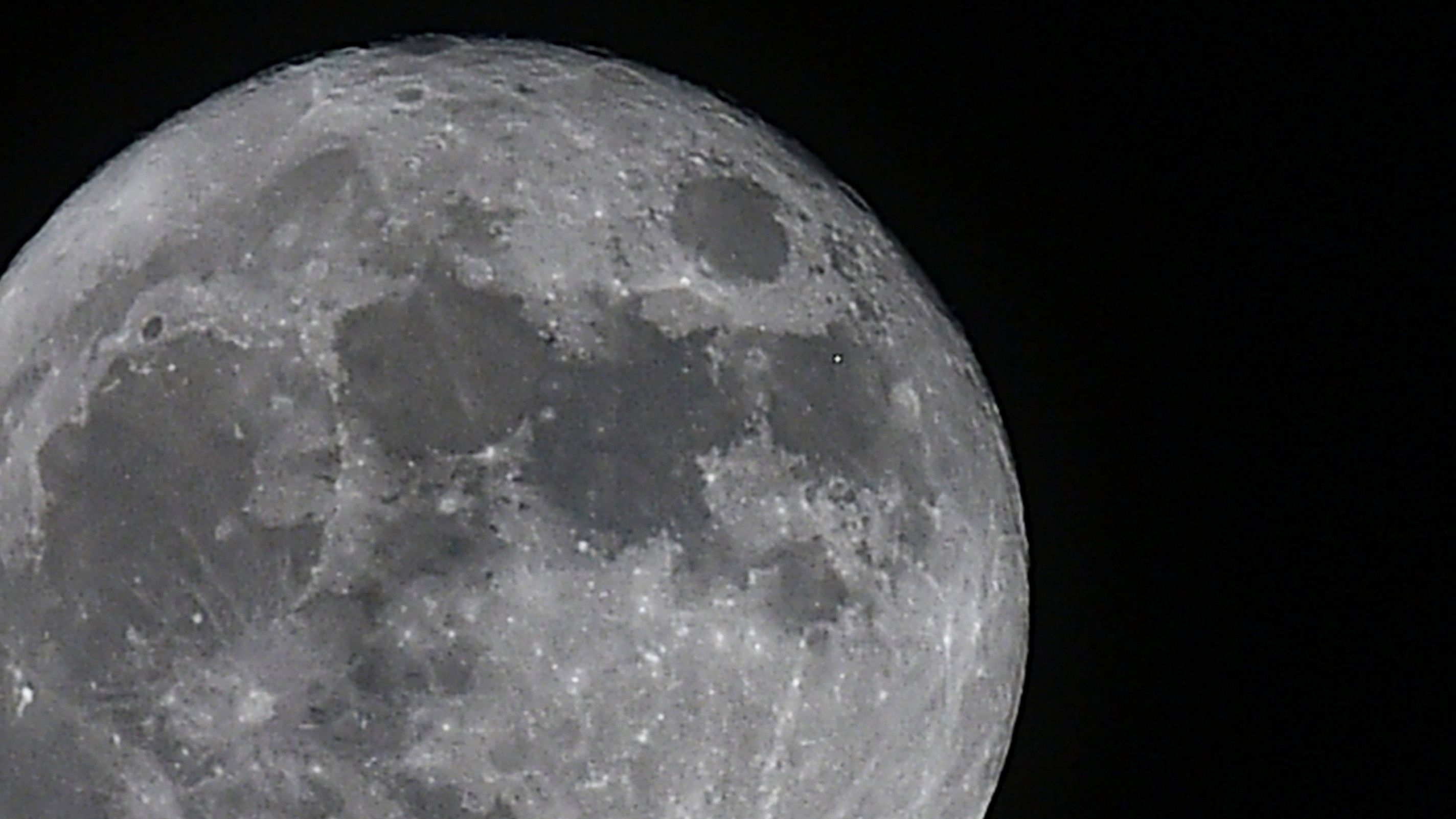
Representative image of the Moon.
Credit: PTI Photo
A study by Indian researchers has found that the period of lockdown during the Covid-19 pandemic may have led to a sharp decrease in the temperatures on the Moon.
The study, published in the peer-reviewed Monthly Notices of the Royal Astronomical Society: Letters, shows that radiation emitted from Earth can have significant impact on the lunar surface temperatures.
K Durga Prasad and G Ambily from Physical Research Laboratory, Ahmedabad and Andhra University, Visakhapatnam studied the lunar night-time surface temperatures of six different sites on the Moon’s nearside during the period 2017–2023.
"Results showed an anomalous dip in the lunar night-time surface temperatures for all the sites during April–May 2020, the strict COVID-19 global lockdown period, when compared to the values of the same period during the previous and subsequent years," the report read.
The sites analysed were two locations of Oceanus Procellarum, Mare Serenitatis, Mare Imbrium, Mare Tranquillitatis, and Mare Crisium.
Terming it a "unique observation related to the Earth–Moon system," the report said that a decrease of nearly 8–10 Kelvin was observed in the maximum nighttime temperature.
This decrease in temperature has been attributed to significant decrease in the terrestrial radiation (TR) on Earth during the said period.
Explaining the impact of terrestrial radiation on lunar surface temperature, the report said that the sunlight that is reflected back in into the atmosphere from the Earth's surface is strengthened by greenhouse gases.
As per the study, when the COVID-19 pandemic hit the world and lockdowns were imposed in many countries, anthropogenic activities such as industrialisation, mining, etc. which lead to pollution were reduced significantly and, thus, the greenhouse emissions.
This further led to the reduction in cloud cover and pollutants over many nations; hence, the outgoing terrestrial radiation decreased proportionally.
The lowest of all the temperatures was recorded at Site 2 of Oceanus Procellarum in 2020, 96.2 K. The temperature at the same site went as high as 131.7 K in 2022. Even the highest of all the lowest temperatures was 108.6 at Site 5.
The report also mentions that more research in the field is needed to establish conclusive links between the two phenomenon. "Moon-based observatories can become potential tools for observing Earth’s environmental changes and needs to be explored extensively," it said.